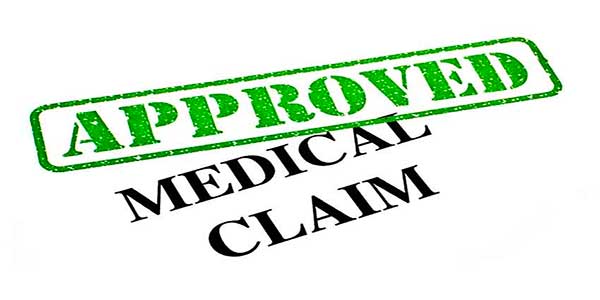Prior Authorizaton
Insurance company's approval that a healthcare service is necessary before you receive the actual service.

Why do I need this?
♦ Obtaining prior authorization is something that should never be skipped.
If a prior authorization requirement is not met, some health insurers may deny coverage, even if the claim would have otherwise been covered.
Sometimes this is called preauthorization, prior approval, precertification or prior review.
♦ Your health insurer or plan may require prior authorization for certain services before you receive them, except in an emergency.
This should be explained in your benefits booklet or other plan documents.
Prior authorization isn’t a promise your health insurance company will cover the cost. However, if the prior authorization is denied you should expect any claims for this service will be denied also.
Your doctor or other health care provider will usually initiate a prior authorization request on your behalf.
♦ It is your responsibility to make sure approval has been received. If it’s not, you could be responsible for the expenses.
• Inpatient admissions, surgeries, services and procedures received on an outpatient basis are almost always subject to prior authorization.
• Your insurance plan may require prior authorization for some forms of testing like CT scans and MRI’s. Treatment plans and durable medical equipment often require authorization before they will be covered.
• Specialized medicines have long required prior authorization, but now most plans require that even brand drugs receive authorization before the drug will be covered.
• Insurers are starting to require prior approval to fill the prescription at the local pharmacy rather than through their associated mail-order pharmacy. This can be a big nuisance for patients that want to get their medication as soon as possible.
The practice of requiring prior authorization has angered many doctors for years. It takes time for doctors and other staff to prepare the paperwork.
Some doctors go so far as to recommend less effective testing or treatment plans just to avoid the hassles of getting approval. Speak with your doctor if you suspect this might be happening.
Insurers would argue it is critical to insuring the patient is not being asked to undergo unnecessary medically tests or to make sure the patient has considered alternative less costly treatment plans.
• Many people would argue that the main driving force for prior authorizations is to save insurance companies money. It is at the least a cost containment method.
How long will it take to obtain authorization or approval?
Requests need to be reviewed and completed in accordance with various state and federal guidelines.
In some cases, this could be up to 72 hours for urgent requests and up to 10 business days for non-urgent or routine requests.
Typically routine requests take 2-5 days once the provider has submitted all the required information.
Who decides?
Many insurance plans decide internally but more and more are contracting this work out to a third party to save money.
Using a third party is also a means to help shield the insurance company from having wrongfully denying a procedure.
Prescriptions are now almost always managed by pharmacy management companies with rules set by individual insurance plans.
What is an urgent request?
Federal regulations define an urgent request as:
• Requires immediate action to prevent a serious deterioration of a member’s health that results from an unforeseen illness or an injury, or
• Could jeopardize the ability of the individual to regain maximum function based upon a prudent layperson’s judgment, or
• In the opinion of the treating physician, would subject the individual to severe pain that cannot be adequately managed without the treatment being requested. An urgent condition is a situation that has the potential to become an emergency in the absence of treatment.
What if prior authorization is denied?
Sometimes, a prior authorization request is denied. If that happens, you have the right to appeal the decision.
Under the Affordable Care Act, consumers have the right to appeal decisions made by health plans created after March 23, 2010.
A plan created prior to March 23, 2010 would be called a 'grandfathered' plan. These types of plans are gradually disappearing. Most of the grandfathered plans still around tend to be plans large companies are maintaining. Many of which are considered 'self-funded.'
♦ Grandfathered plans will still have an appeal process. It just may not be as patient friendly as plans the must conform to Affordable Care Act requirements.
Whichever plan you have, you will need to follow the process required by your insurer. It will most certainly require your doctor or provider to submit more detailed documentation to address the questions raised in the denial notification.
Be sure to read the denial letter very carefully.
If your appeal is also denied, you may be able to re-appeal or you may be eligible to have an external review. Unless the treatment or service is very expensive the likelihood of succeeding upon appeal is high.
• At some point, it is more cost effective for the insurer to stop denying your request rather than continue to argue back and forth.
Persistence does pay off, so don’t lose hope.

